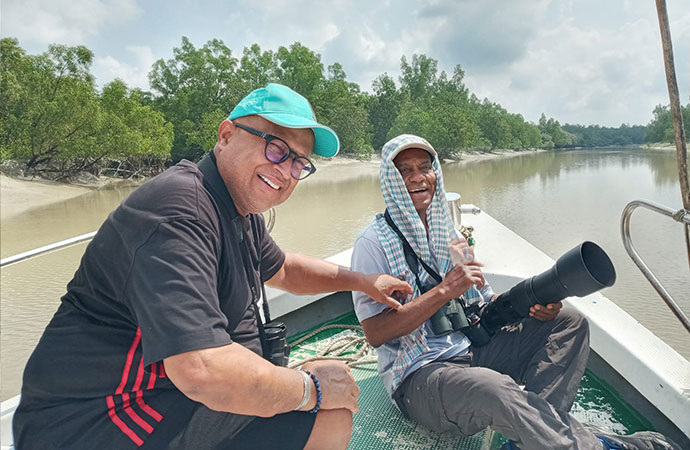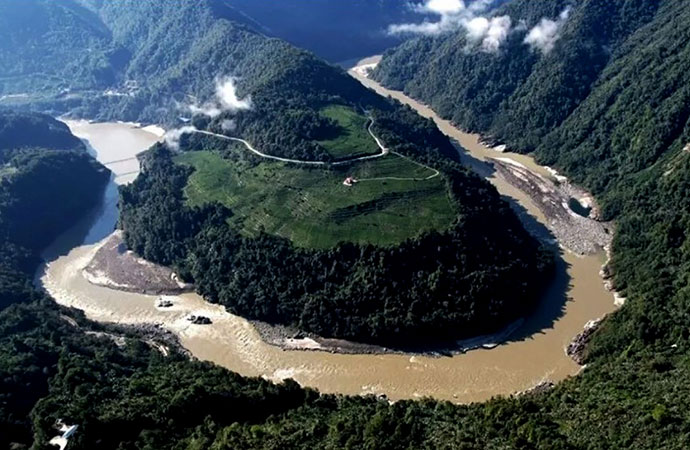Reportage

Image: UNESCO
The recent murder of a local reporter in Gazipur sparks profound concern about the safety of journalists in Bangladesh. Miscreants killed Asaduzzaman Tuhin, the Gazipur staff reporter of Dainik Protidiner Kagoj, on August 7 in 2025. The way miscreants stabbed him to death in film style depicts how Bangladeshi journalists work risking their life. The killing of Tuhin raises the issue of safety of journalists once again.
The Interim Government of Bangladesh assumed power on August 8 in 2024 after the July mass uprising and it expressed its commitment to ensure freedom of expression, and to allow journalists to critically report on issues related to critical issues like corruption and human rights violations. The government also stressed improving safety and working conditions of journalists but there is no significant change visible in this sector.
However, a collaborative study by the United Nations Development Programme (UNDP) and the United Nations Educational, Scientific and Cultural Organization (UNESCO) reveals how poor is the safety of journalists in Bangladesh.
The study titled "An Assessment of Bangladesh's Media Landscape Free, Independent and Pluralistic Media" finds the persistent situation of intimidation, harassment, and insecurity still being experienced by journalists after the uprising. The current mediascape remains fraught with obstacles despite the changeover. The Editors' Council also expressed concerns over the safety of journalists, pointing out the "escalating rhetoric and even threats of siege by certain quarters targeting certain media houses".
A persistent culture of impunity has been shaping the safety and security perceptions of journalists in recent years. This situation remains broadly the same in the current days, particularly in the area of the fight against impunity. Justice for some murder cases is yet to be delivered. For instance, journalist couple Sagar-Runi murder case has not been completed yet, even in the last 12 years. These persisting threats remain particularly perceptible at the local level. Journalism in big cities, as well as in rural areas, is also under multiple pressures, which in many cases may also be felt as threatening at different levels. They come from political forces, power elites, corporations, and advertisement providers, and may be applied in different manners: directives, threats, and financial and advertising restrictions from government departments and agencies.
Bullying and smear campaigns against online commentators and activists are still common and appear to be orchestrated from powerful and resourceful instances, the study shows.
In recent years, journalism and media activities have also been constrained under an over-restrictive and unpredictable legal and regulatory framework, which has also facilitated the use of "informal" pressure mechanisms from State agencies, Despite the political changes, the current environment still encompasses fears of the restrictive laws while pressures from the new elites are also a reality.
The associations and unions of the journalists, including the press clubs, are accused of failing to properly address these issues, due to the already mentioned operational shortcomings as well as their active role in political struggles and polarisation.
Besides, media owners and managers are still not paying heed to the safety of journalists.
Therefore, the study provides a series of recommendations regarding the safety of journalists in Bangladesh. The recommendations conclude:
• Support the different public stakeholders regarding the implementation of preventive, protective and prosecuting measures to tackle lack of safety and impunity.
• Promote among significant actors (policymakers, judges, prosecutors, law enforcement) a proper understanding of the demands connected to safety of journalists and the need to create an enabling environment for journalists.
• Support the reform legal provisions that may allow for the arbitrary arrest or detention of journalists.
• Promote the regular monitoring and report on attacks against journalists by different stakeholders.
• Support the establishment of all the legal and institutional mechanisms to prevent any forms of spying on journalists or interception of their communications.
• Support the establishment of legal and regulatory safeguards regarding the use of encryption and anonymity in online communications.
• Support the full legal protection of journalists' right to protect confidential sources.
• Train key stakeholders (including judges, law enforcement, military, journalists, and civil society) on the States' international legal obligations and commitments on the safety of journalists.
• Incentivise the public, unequivocal, and systematically condemnation of violence and attacks against journalists by relevant institutions and State actors.
• Promote the establishment of effective early warning systems and rapid response mechanisms for journalists, to be managed by competent law enforcement institutions.
• Promote the regular monitoring and report on attacks against journalists by different stakeholders.
• Establish the necessary criteria and rules to particularly guarantee the protection of journalists covering protests and elections.
• Promote the adoption of legal and institutional reforms aiming at establishing the necessary mechanisms for the proper investigation and prosecution of crimes against journalists.
• Incentivise initiatives and institutional mechanisms aiming to ensure that victims of crimes against journalists and their families have access to appropriate remedies.
• Recognise the role of media organisations in advancing safety.
• Promote a strategy to identify and tackle existing cases of unresolved crimes against journalists and combat impunity.
• Actively promote efforts to effectively implement the international human right framework on the safety of journalists, in close and active collaboration with relevant international organisations and particularly UNESCO.

























Leave a Comment
Recent Posts
Religion and Politics: A Toxic ...
At Dhaka University, cafeteria workers have been told not to wear shor ...
Enayetullah Khan joins AsiaNet ...
AsiaNet’s annual board meeting and forum was held in Singapore, ...
In a New York minute
Many leaders back a UN call to address challenges to ..
Defaulted loans at Non-Bank Financial Institutions ( ..
How the late Zubeen Garg embodied cultural affinitie ..